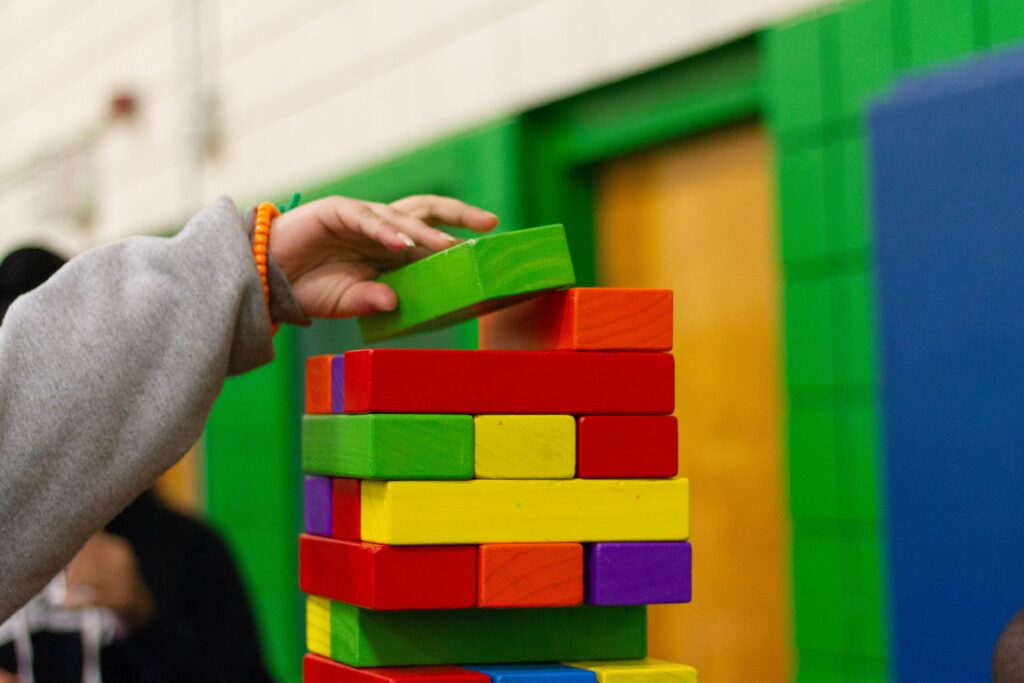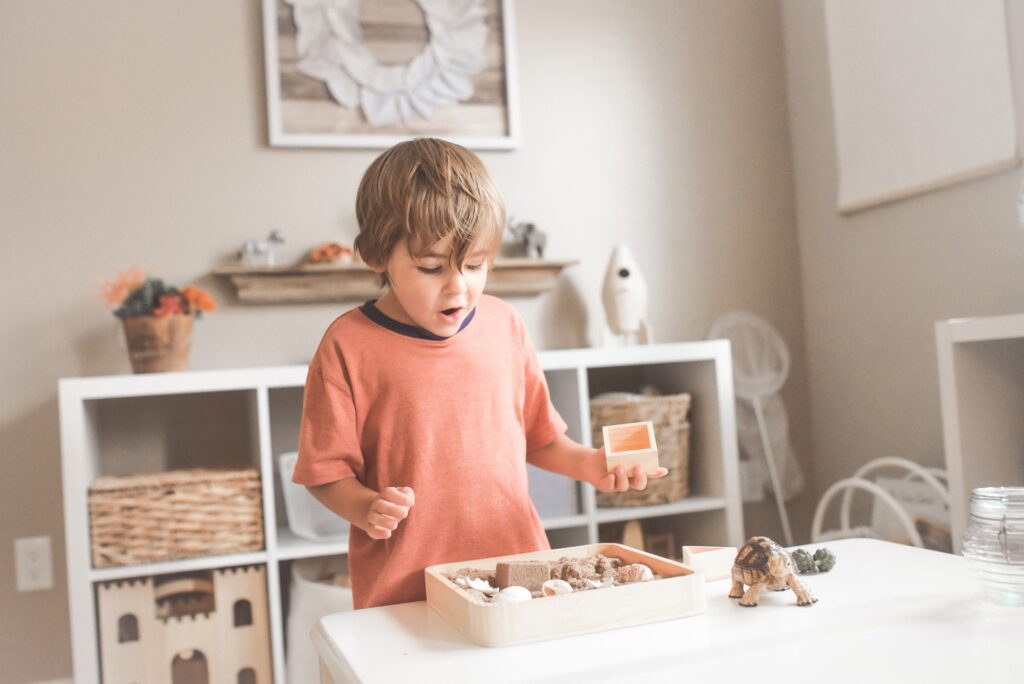What exactly is play therapy?
Play therapy is a coherent approach to therapy by a Masters level therapist with specific training and supervision to develop their skills. Play therapy capitalizes on using play as a natural method for children to communicate, problem solve and learn new and more productive ways of managing their world. Play allows joy, mastery and connection to inform emotional and behavioral growth. Play also allows practice of needed skills and roles. The relationship with the play therapist is key in helping a child’s emotional experience and healing.
What age should my child be for play therapy?
While play is literally good for everyone—play therapy is generally best for ages 3-12. More importantly will be your child’s willingness and connection with the therapist. Imaginative and pretend play can be helpful skills, but some models even focus on parent-child play and can be surprisingly powerful ways of using the parent-child connection for healing.
How can play therapy help?
Research supports play therapy in helping a wide range of mental health and behavioral concerns. From life stress like family divorce to anxiety, grief and loss and even oppositional and difficult behaviors. Growth can show up in a variety of ways.
- Children accept more responsibility for behaviors
- Learning new ways to express emotions
- Developing greater empathy and respect for the thoughts and feelings of others
- Finding new relational skills and connecting better with friends and family
- Feeling more confident about their abilities
- Creating solutions to their problems
How long does play therapy take?
Each play therapy session varies in length but usually last about 30 to 50 minutes. Sessions are usually held weekly. Research suggests that it takes an average of 20 play therapy sessions to resolve the problems of the typical child referred for treatment. Some children may improve faster while more complex or ongoing problems may take more time (Carmichael, 2006; Landreth, 2002).
How will the family be involved in play therapy?
While each situation has different need, it is always better for your child’s healing to have you involved. Sometimes your child’s distress is simply echoing greater stresses in the family. Other times the family can be greatly impacted by the child’s behaviors and emotions. The therapist may ask for different levels of involvement, but at minimum getting feedback about progress an challenges will be very important. Other combined sessions might be supporting you in skills to support your child or involving the entire family in play. Family typically will play an important role in your child’s healing.

Stages of play therapy process
Throughout the play therapy process, parents play an important role in supporting their child. Understanding the general process can help you feel more comfortable and recognize signs of progress. The Association for Play Therapy identifies seven stages of play therapy.
- Intake
The first meeting with your child’s play therapist will include an interview about your child’s development, current challenges, and the purpose of play therapy support. Giving the therapist as much information as possible and being open and honest are important to help them understand your child’s needs more quickly. The therapist should also meet with your child and get a sense of their perspective and willingness to participate in the treatment process. - Pre-treatment Assessment
Depending on your child’s needs the therapist may decide to do formal or informal assessments. These could be questionnaires for you or your child, drawings or activities or even further observation time with you and your child. This information will further inform the treatment planning and approaches to best supporting your child. - Introduction phase
The first few sessions are typically the Introduction phase. During this phase, your child will be getting used to the play therapist, the playroom, and the play therapy process. The more shy or anxious your child is, the more difficult this period may be. You can help by providing your child with a lot of encouragement so he or she will give the treatment a chance to begin working. - Tentative Acceptance phase
The first several sessions following introductions are usually the easiest for parents and children alike. Your child will typically look forward to play sessions and interacting with the play therapist. For some children, this can start from the very first session if they are less anxious or shy. - Negative Reaction phase
The process of play therapy causes your child to make some changes. These changes are needed, but may not always be comfortable or easy. Trying new, healthier behaviors can result in discomfort. Your child may do fine or will alternate between trying new things and going back to previous behaviors that feel more comfortable. This can look like things getting worse or even resisting play therapy sessions. Parents can support their kids to keep trying and focus on the things that are going well. - Growing phase
This is usually the longest and most productive time of play therapy sessions. The child should understand their difficulties and have more confidence in what they can do to feel better. This is a time when significant progress is made, but it should be expected that there will also be regressions, or times when the child goes back to the way they used to handle things and older behaviors. This can be frustrating for everyone. Learning that this is part of moving forward and trusting the growth process is key. - Termination phase
When your child’s emotions and behaviors have stabilized to where play therapy is not needed on a regular basis, there will be a plan to end therapy. This can be hard for kiddos. Parents see this success as positive growth, but children have settled into the process and find a lot of joy and comfort just when it might be ending. Making sure to attend the closing sessions will be important to help everyone talk about the skills and hope that will carry beyond the play therapy sessions. A child may act out in an effort to prolong therapy, so encouraging them and yourself about the gains and skills that have been learned is important.







